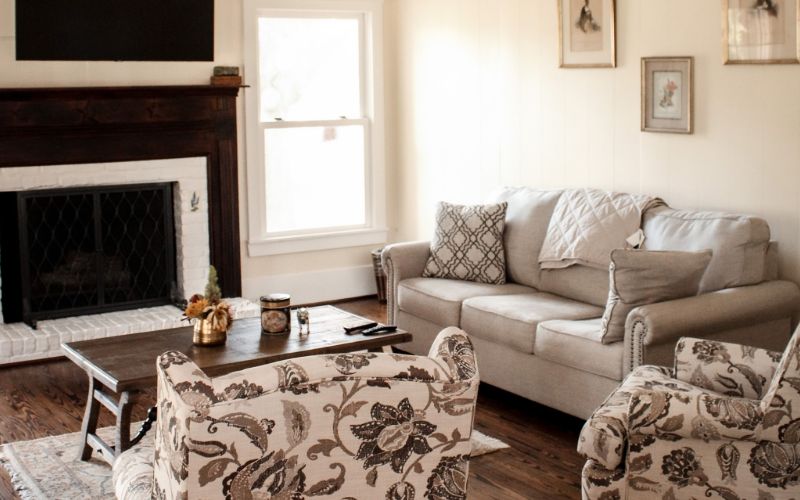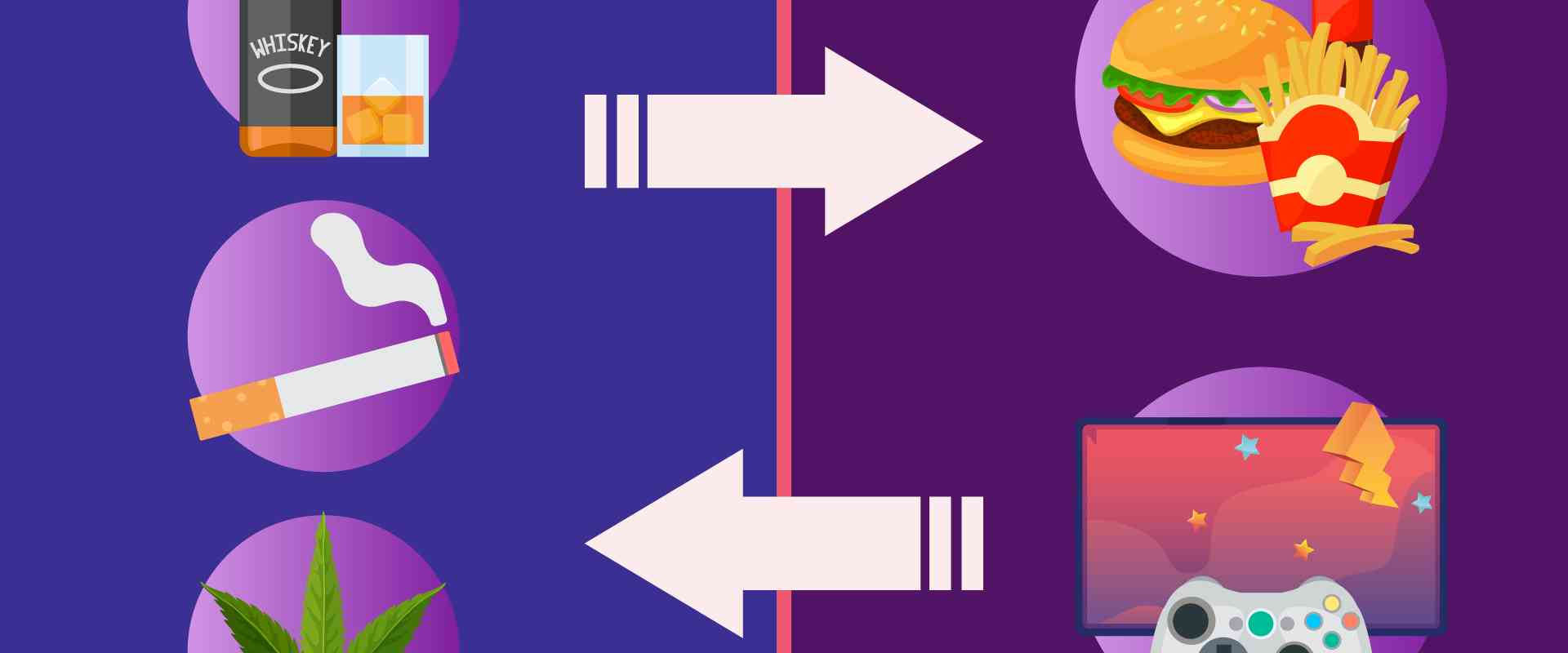Learn / What Happens When You Arrive at Rehab?
What Happens When You Arrive at Rehab?


November 22nd, 2021| Clinically Reviewed by
Key Points
- Life in rehab is supervised; expect staff to implement site rules upon arrival.
- After orientation, an assessment sets the stage for your treatment plan.
- Most treatment plans have several components, from talk therapy to complementary ones.
When you first begin rehab, you’re at the start of a big transition. It’s often helpful to know what to expect when you arrive at a residential facility. Although every luxury rehab center has a slightly different process, there are certain things you can reasonably expect.
Above all, try to remember that the staff at your rehab facility is on your side. Their job is to help you navigate the healing process as seamlessly as possible. As daunting as recovery can be, your providers will be on hand to guide you through every step.
Traveling to Rehab
After you choose a rehab center, you’ll start making travel plans. If you’re attending rehab locally, this might be as simple as packing a bag and getting into a car. On the other hand, if you’ve chosen a destination rehab, you may need to book plane tickets, schedule a ride from the airport, and make sure your passport is up to date. These logistics may sound overwhelming; remember that you are not alone. Your program’s admissions team can answer your questions and help you decide between various options.
Many rehab centers offer their clients free transportation to and from the airport. If at all possible, it’s best to avoid traveling alone. This ensures that you’ll have emotional support throughout the process, and that you’ll arrive at the facility at the time you planned.
Arriving at Rehab
When you arrive at the rehab center, you’re beginning a new chapter of your life. As soon as you enter into the care of the program, you’ll have round-the-clock care from a team of experts.
For many people in recovery, this is a starkly different environment from the one they’ve most recently experienced. As positive as it is to have support, the adjustment period can be uncomfortable. That’s normal. It doesn’t mean that you’re doing it wrong, or that rehab isn’t for you. Do your best to be patient with yourself as you get used to your new surroundings.
One of the biggest differences between life before rehab and life in an inpatient program is the level of supervision. You can expect your providers to set clear boundaries around what is and isn’t allowed at the facility. These guidelines will be implemented from the moment you arrive on site.
Restricted Items
When you check in, someone on staff will perform a bag check. During this process, they’ll inspect your luggage, going through your belongings to see what you’ve brought with you.
Each facility has its own rules about which items are and are not allowed in the program. Sierra by the Sea, for instance, has a dress code. Clients are instructed to pack “casual, comfortable clothing that fits appropriately (no large, baggy clothing or any clothing that exposes your midriff or underwear).” Many rehabs also regulate their clients’ use of personal electronics during rehab. And you almost certainly won’t be allowed to bring weapons or substances of any kind.

If you bring an item that’s not permitted, it will either be sent home with family members, or stored until you leave the program. Substances will likely be disposed of. Because this process may feel invasive to some clients, it’s best to emotionally prepare yourself in advance. Remember that you’ve come to rehab in order to get help from experts. And when you first arrive, your providers may have a better sense than you do about which boundaries are appropriate.
Health and Wellness
In this post-2020 world, you can expect to take a COVID test when you first arrive at rehab. If you test positive, different facilities may have different rules about how to proceed. As we continue to research the virus, and as more treatments and preventative measures become available, these rules may change quickly. If you have concerns about your program’s COVID protocols, make sure to find out more from the admissions team before you arrive.
You may also be asked to take a drug test, upon arrival and/or at regular intervals throughout the program. Your facility may enact certain protocols if you test positive for substances at any point in your stay. However, because rehab is tailored to meet the needs of people with substance use disorders, you can talk openly with your team about what will happen if this occurs. The more information you have, the better equipped you will be to navigate residential treatment.
Initial Assessment
During your initial assessment, you’ll talk to at least one provider about your personal history, including symptoms related to your physical and mental health. Some programs perform these assessments over the phone, before you even arrive at rehab. Others wait until you can speak to your team in person. You may even do both. This is especially likely for people who attend medical detox before rehab, and have already begun the process of recovery.
An assessment is an in-depth exploration of your personal experience with substance use. According to Alex Spritzer, Family Addiction and Psychiatric Nurse Practitioner at The Hope House Scottsdale, practitioners learn as much as they can about each client, looking at “social factors such as where the client existed in their illness. Were they at home? Were they far away from their family?”
“We consider their barriers to recovery, which could include fractured relationships, homelessness, joblessness and other social factors that promote continued use. And through a systematic process, we seek to reduce those barriers to recovery.”
– Alex Spritzer, Family Addiction and Psychiatric Nurse Practitioner, The Hope House Scottsdale
Clients may fill out paperwork, including a number of questionnaires. This information may help the psychiatric team diagnose co-occurring disorders, such as depression and anxiety, or just get a better understanding of your emotional experience.

“After completing the initial paperwork” at rehabs like The Orchard on the Brazos, “you will have a one-on-one meeting with a member of our clinical staff. This meeting will allow our doctors to assess your unique substance abuse patterns, as well as your medical and mental health history.”
This comprehensive process is intended to give your team all the information they need for the next step: developing a treatment plan.
Creating a Treatment Plan
Every person’s needs for recovery are unique. With this in mind, you’ll work with your treatment providers to design a plan that meets your specific needs.
Rehabs with personalized treatment take this to the next level, giving each client a great deal of control over their own experience. At these facilities, you might get to set your own schedule or choose between various therapeutic modalities.
Other rehabs have a much more structured approach to healing. Nevertheless, no recovery experience is one-size-fits-all. Even if you attend a program with a stricter framework, your providers are there to help you heal, in whichever way will be most effective. With that in mind, your treatment plan is likely to include several different components, such as:
Talk Therapy
During individual therapy, you’ll have regular one-on-one conversations with a provider. This relationship may serve as an emotional anchor throughout your time in rehab. You’ll have the opportunity to learn new strategies for managing your mental health, process what happened in your life before rehab, and integrate insights from your other experiences in the program.
Psychiatry
Some clients work with a psychiatrist during rehab. This provider will prescribe you psychiatric medications intended to help you manage your mental health. In some cases, these are only intended to help you stabilize during and immediately after detox. Other clients find that ongoing medication is an important part of their continued recovery.
Group Therapy
In group therapy, you’ll connect with the other people in your cohort. This process invites you to practice building healthy interpersonal relationships. It also encourages clients to provide each other with mutual emotional support. You may find that connecting with your peers gives you insight into your own experience that would be harder to glean from individual therapy alone.
Some clients attend focused group therapy using a specific therapeutic modality, such as DBT. You may benefit from support groups, including 12-Step programs like Alcoholics Anonymous.
Experiential Therapies
Many rehabs offer some form of experiential therapy, in which clients engage in activities that help them process emotions from a new perspective. For example, you might take a dance class, go on a safari, or do a ropes course. These experiences have the potential to be both fun and meaningful.

Jeanine Fourie, Therapeutic Director and Co-Owner of White River Manor explains that this rehab offers “quite a wide selection of activities. We feel that it’s important for people to find themselves. This fits into the therapeutic program.”
“Sometimes people can overcome their fear only in a practical setting, whether it’s ziplining, or bungee jumping. Sometimes that’s an important component: just learning how to have fun without being high or needing any external source of comfort.”
– Jeanine Fourie, Therapeutic Director and Co-Owner, White River Manor
Complementary Therapies
Many rehabs offer holistic modalities, such as massage, yoga, and even acupuncture. These therapies are designed to help you stay present in your body as you become reacquainted with your own needs, and learn how to meet them in a sustainable way.
Strengthening the mind-body connection may help you learn how to work through triggers whenever they arise. Simply taking a deep breath, stretching, or coming back into your body can be extremely powerful. These therapies can also have a positive impact on your physical health.
Medical Treatment
It’s quite common for clients to work with a medical team during their time in rehab. Even if you don’t have pre-existing physical health conditions, recovery can be hard on your system. As you learn or relearn how to stay in tune with your body, you may benefit from certain prescription medications, especially if you choose to undergo medical detox.
There’s more to health than treating illness. For example, even if you’re perfectly physically fit, it can be helpful to work with a nutritionist. These strategies are designed to help you build healthy habits that will support you during and after residential treatment.
Rehab Can Be a New Beginning
When you first arrive at rehab, it’s easy to be overwhelmed. You’re going through a major life transition, and there’s a lot to take in. During this time, be as gentle with yourself as you can. It may take you some time to acclimate to your surroundings.
Once you settle into residential treatment, you’ll start to find a rhythm. Your internal experience may continue to change quickly, due to insights gleaned in therapy, physical recovery, or a combination of the two. Rehab itself, however, is intended to be a stable environment in which you can do this important work.
Browse our list of luxury rehab facilities and filter by price, location, amenities, and more.
Frequently Asked Questions About What Happens When You Get to Rehab
What happens when you arrive at rehab?
When you arrive at rehab, you’ll undergo an intake process including assessments, paperwork, and orientation. You’ll get to know the center’s rules, meet your treatment team and other staff, and receive a treatment plan. This process sets the foundation for your recovery journey.
What should I pack for rehab?
You should pack essentials for rehab, including comfortable clothes, toiletries, and key documents, such as medical records. It’s important to check with the center beforehand on what to bring and what to leave behind. For example, some rehabs allow cell phones while others don’t.
What support can I expect upon arrival at rehab?
You can expect rehab staff to provide a supportive environment and guide you through the intake process. Luxury rehabs tend to be more hands-on. You can expect one-on-one meetings with clinical staff, where they get to know your unique background.
Return to Resource Library
Our Promise
How Is RehabPath Different?
We believe everyone deserves access to accurate, unbiased information about mental health and addiction. That’s why we have a comprehensive set of treatment providers and don't charge for inclusion. Any center that meets our criteria can list for free. We do not and have never accepted fees for referring someone to a particular center. Providers who advertise with us must be verified by our Research Team and we clearly mark their status as advertisers.








